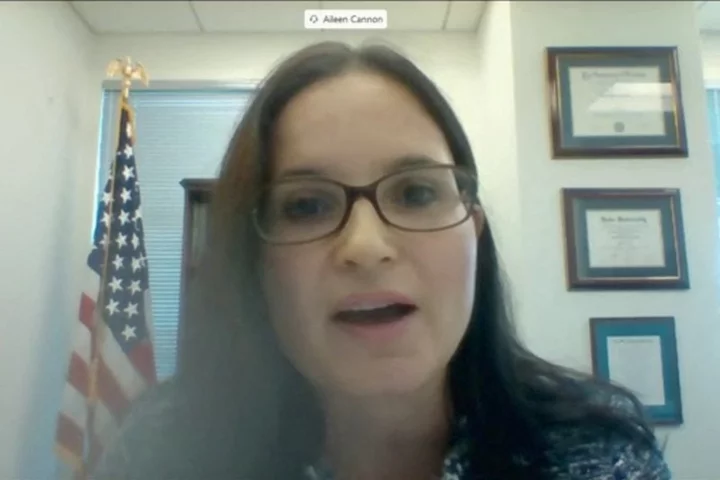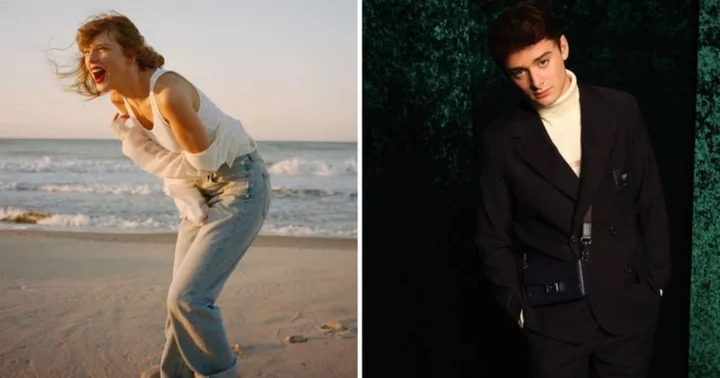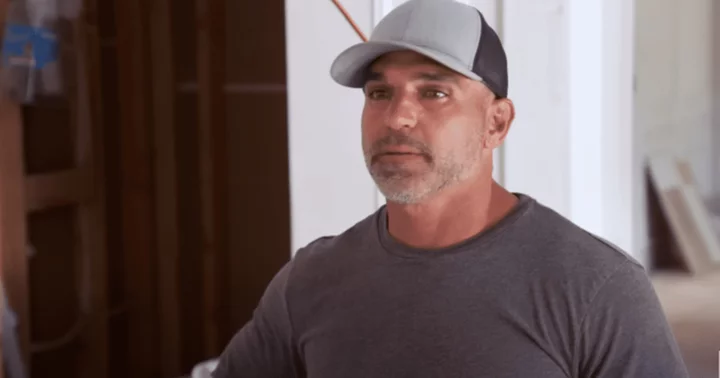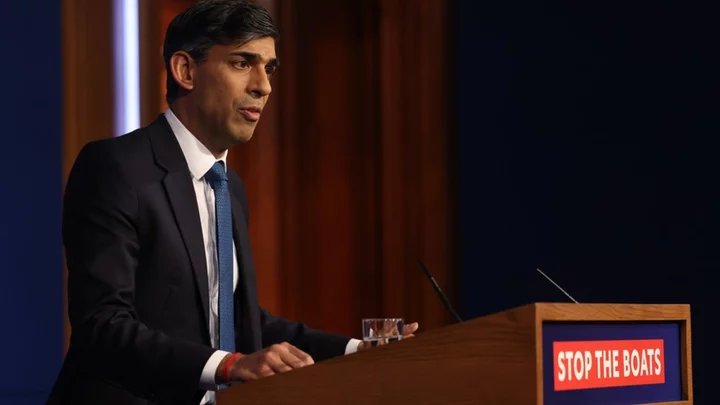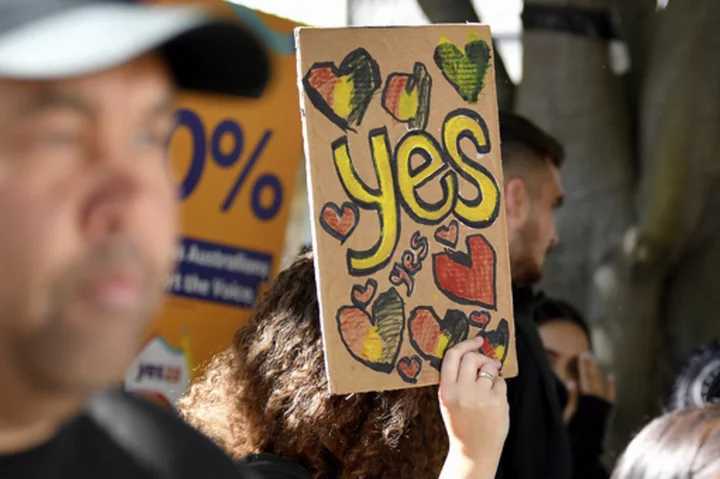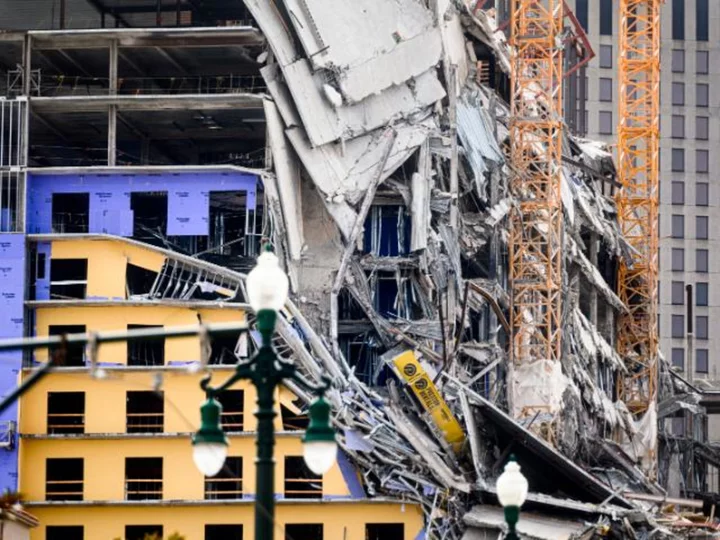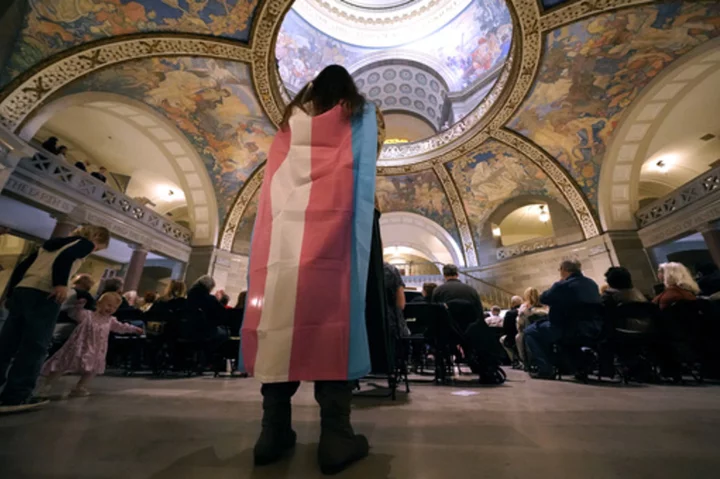By Sarah N. Lynch and Jacqueline Thomsen
WASHINGTON The judge in former U.S. President Donald Trump's upcoming trial over his handling of classified documents made two errors in a June trial, including one that potentially violated the defendant's constitutional rights and could have invalidated the proceedings, according to legal experts and a court transcript.
Florida-based U.S. District Judge Aileen Cannon closed jury selection for the trial of an Alabama man - accused by federal prosecutors of running a website with images of child sex abuse - to the defendant's family and the general public, pointing to a lack of space in the courtroom, a trial transcript viewed by Reuters showed.
A defendant's right to a public trial is protected by the U.S. Constitution's Sixth Amendment, though judges have discretion in certain circumstances to close courtrooms.
Cannon, a 42-year-old former federal prosecutor appointed by Trump to the bench in 2020, also neglected to swear in the prospective jury pool - an obligatory procedure in which people who may serve on the panel pledge to tell the truth during the selection process.
This error forced Cannon to re-start jury selection before the trial ended abruptly with defendant William Spearman pleading guilty as part of an agreement with prosecutors. Spearman's plea deal included an unusual provision allowing him to appeal a decision by Cannon against his motion to suppress evidence in the case.
Cannon's decision to close the courtroom represents "a fundamental constitutional error," said Stephen Smith, a professor at the Santa Clara School of Law in California. "She ignored the public trial right entirely. It's as though she didn't know it existed."
But, he noted, Cannon did seek to correct the mistakes by later offering to let the defendant's mother and sister into the courtroom after the departure of some of the jury pool would make more seats available. Seats became available after some potential jurors were dismissed, but the court then took a lunch break. When both parties returned, they told the judge they had reached a plea deal, meaning there was no trial for Spearman's family to observe. Members of the Spearman family were not immediately available to comment.
Jeremy Fogel, a former federal judge who leads the Berkeley Judicial Institute in California, said Cannon made "two fairly significant mistakes" during jury selection in the June trial, but said it's hard to gauge their consequences because the trial did not move forward.
Cannon did not respond to multiple requests for comment. Scott Berry, Spearman's federal public defender, declined to comment, as did a Justice Department spokesperson.
Five former federal judges -- four appointed by Democrats and one by a Republican -- said in interviews that Cannon’s errors likely reflect relative inexperience on the bench. They said judges typically make fewer errors as they gain experience.
'SO MANY MOVING PARTS'
Paul Grimm, a former federal judge in Maryland who now leads the Bolch Judicial Institute at Duke Law School, said that judges can and do make mistakes in their early years that they look back on and learn from.
"It doesn't mean it's not a good judge, it doesn't mean the judge is not paying attention," Grimm said. "It's just that there's so many moving parts that you're responsible for, and against the context that this is not the only case the judge has and there's a lot of other distractions, these things can happen."
The historic trial of a former president on charges of mishandling national secrets will present a unique set of challenges including intense public scrutiny and the complex laws around handling classified material used as evidence, legal experts said.
Four of the former judges said courtrooms should be closed only in instances where a witness was testifying who could be put at risk or another security or sensitive national security issue was raised. The fifth did not address the topic.
Lack of space was something they would try to accommodate, those judges said, and the U.S. Supreme Court has said that is not reason enough to close a courtroom. Cannon at her first hearing in the Trump documents case allowed members of the press to observe the proceedings in her courtroom through a video feed to another room in the courthouse.
Legal experts said closing a courtroom to the public without a valid reason has been recognized by the U.S. Supreme Court as a "structural error" - a mistake so significant that it can invalidate a criminal trial because it strikes at the heart of the entire process. A public trial also has been found to implicate First Amendment rights of freedom of assembly, speech and press.
"It is a structural error, meaning you don't have to show any prejudice or harm because it is a constitutional right," Brian Steel, an attorney who wrote an amicus brief in one of the two key Supreme Court cases affirming the right to a public trial, said in an interview.
Both Spearman's federal public defender and a federal prosecutor in the case asked Cannon to allow his mother into the courtroom, with the prosecutor noting that Supreme Court precedent that held that judges must weigh less restrictive alternatives prior to closing a courtroom to the public.
Mark Bennett, the former Chief U.S. District Judge of the Northern District of Iowa, said, "She should have figured ahead of time a way to accommodate a small number of family members in a very small courtroom, in my opinion. It's just the right thing to do, and not run the risk of there being reversible error."
One of the pivotal Supreme Court cases on the right to a public trial is Waller v. Georgia. That 1984 case requires a four-part test be conducted before closing a trial. As part of that test, any courtroom closure must be "no broader than necessary" and the court must consider "reasonable alternatives." Experts said the decision in this case also requires a judge to articulate adequate findings to support a closure - something Cannon did not do in this instance.
LIMITED EXPERIENCE
As a judge, Cannon so far has presided over four criminal trials that resulted in jury verdicts. She previously also worked on four criminal trials that resulted in jury verdicts when she served a federal prosecutor from 2013 to 2020, according to a questionnaire she filled out before the Senate confirmed her as a judge.
Cannon faced a rebuke from the Atlanta-based 11th U.S. Circuit Court of Appeals when it reversed her 2022 order appointing a third party to review documents seized by the FBI from Trump's Mar-a-Lago resort home in Florida in the classified records investigation.
"We cannot write a rule that allows any subject of a search warrant to block government investigations after the execution of the warrant. Nor can we write a rule that allows only former presidents to do so," the 11th Circuit panel of three judges - all Republican appointees - wrote in reversing Cannon's ruling and ordering the dismissal of a lawsuit filed by Trump that sought to shield documents from federal investigators.
Trump's upcoming trial on 40 criminal counts of retaining classified records, obstruction of justice and conspiracy is one of three prosecutions he is currently facing, with the others being a federal case in Washington on charges of trying to overturn his election defeat and a New York state trial over hush-money payments to a porn star.
'YOUR OBJECTION IS OVERRULED'
Cannon began jury selection on June 12 in the trial of Spearman, who was charged with conspiring to advertise and distribute images of child sexual abuse and with engaging in a child exploitation enterprise.
That day, the court transcript showed, Cannon failed to swear in the jury pool. Cannon also declined to open the courtroom to the public despite repeated requests from both prosecutors and defense attorneys, the transcript showed.
Some of the former federal judges interviewed by Reuters said their courtroom deputies sometimes would remind them of procedural steps like swearing in prospective jurors, as they may be focused on other aspects of running a trial.
Berry, the federal defender, argued in the courtroom that Cannon's refusal to let his client's mother and sister be present during jury selection was a Sixth Amendment violation.
"All right, thank you. Your objection is overruled," Cannon replied, according to the transcript.
A federal prosecutor in the case, Greg Schiller, later pressed Cannon to let in Spearman's mother. Schiller raised a 2010 U.S. Supreme Court precedent that held that judges must weigh less restrictive alternatives prior to closing a courtroom to the public, including during the jury selection process.
When Berry later pointed to two open chairs in the room, Cannon resisted his request again, saying the chairs were reserved for law enforcement.
"Mr. Spearman's mother is free to join us once the jury selection process has concluded and/or there is truly enough room in the courtroom," Cannon said, according to the transcript.
Cannon later offered to let in Spearman's family after the judge realized she also had failed to swear in the jury pool. She said there would be room in the courtroom after certain jurors who both sides in the case agreed should be dismissed had left.
The jury selection process never re-started because Spearman and the prosecutors entered into a "conditional" plea deal, an uncommon arrangement that preserves a defendant's right to appeal certain rulings by the trial judge. In most plea deals, defendants waive the bulk of their appellate rights.
The decision by Spearman, who is due to be sentenced by Cannon on Aug. 31, to enter a plea deal averted the problem with the court closure. But legal experts said it raises questions about how Cannon will handle public access for Trump's trial.
"She is going to have to make some accommodations," Santa Clara's Smith said.
(Reporting by Jacqueline Thomsen and Sarah N. Lynch; Editing by Will Dunham and Scott Malone)

